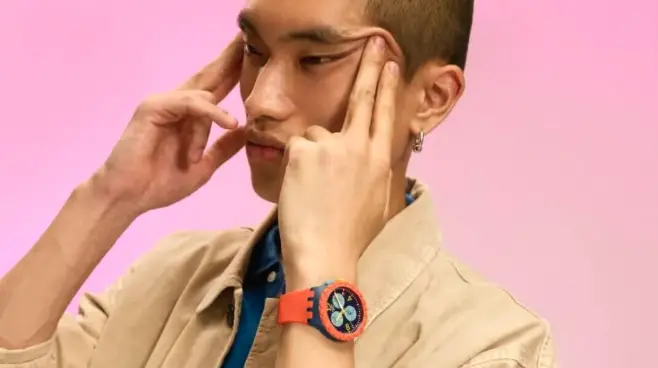ASA rulings and Swatch storm show that ‘woke’ still matters in ads
Three ads this week have come under fire for overstepping the bounds of what’s acceptable to the public. In every case, the marketer has underestimated the consumer’s desire for advertising that meets the basic principle of treating people with respect.
First up, an ad by Hogarth Worldwide for Colgate-Palmolive’s Sanex shower gel has been banned by the Advertising Standards Authority for perpetuating negative stereotypes about people with darker skin tones. It shows one black woman with red scratch marks and another covered with cracked, clay-like material.
Colgate-Palmolive said it was all about their commitment to diversity and inclusivity. But the one white woman depicted is shown with smooth, clean skin which the ASA said could be interpreted as suggesting that white skin was superior to black skin.
Lloyds Bank has also fallen foul of its own attempts to present itself as an enlightened, inclusive company. In what must be one of adam&eveDDB’s last ads for the brand, a picture of a black horse galloping past new homes is accompanied by the caption, “£19.5 billion for social housing. And that’s just the start. Everyone deserves a safe place to call home.”
You’d be forgiven for thinking that Lloyds Banking Group had donated £19.5 billion to social housing projects – but they haven’t. Lloyds argued that its intended business audience (the ad was in The Times) would understand that these funds were unlocked via commercial activity like loans, investment and market activity in the housing sector – but the ASA didn’t buy it.

Swiss watchmaker Swatch didn’t need to wait for an ASA ruling before it was forced to apologise for a campaign that shows a model pulling up the corners of his eyes, in a trope that is used to mock Asians. Swatch pulled the ad, and posted that it had “taken note of recent concerns regarding the portrayal of a model in images for the Swatch Essentials Collection… we treat this matter with the utmost importance.”
Swatch is unlikely to get off with just an Instagram apology. Mainland China, Hong Kong and Macau account for a third of the company’s revenues, and Chinese social media users are calling for a boycott – which comes on the back of a 19% drop in Swatch’s Chinese exports.

When diversity and inclusion are being rapidly relegated down the list of company priorities, marketers might stop to note that consumers still care about it. And the consumer, as they say, is king.











The Lloyds ad is a good example of Social Impact Wash (the S in ESG).
We’ve had years of greenwash (the E in ESG) by the Green Claims Directive and ASA has put a lid on lies, spins and implied claims.
Now brands are focusing on social causes, and social impact – what they can do for people, communities and society (referred to as PCS).
Dr Chris Arnold
My Social Impact (consultancy)